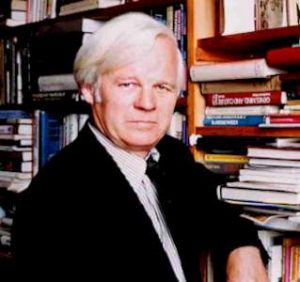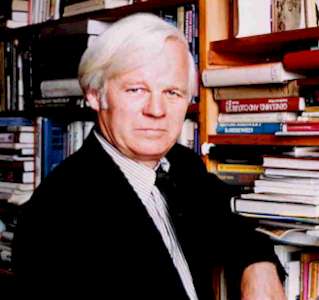 Richard Lynn is an English psychologist and author. A former professor emeritus of psychology at Ulster University and assistant editor of the journal Mankind Quarterly, Prof. Lynn is perhaps the world’s foremost proponent of eugenics. He is also well known for his studies of racial differences in intelligence. Many of his books have been reviewed at American Renaissance.
Richard Lynn is an English psychologist and author. A former professor emeritus of psychology at Ulster University and assistant editor of the journal Mankind Quarterly, Prof. Lynn is perhaps the world’s foremost proponent of eugenics. He is also well known for his studies of racial differences in intelligence. Many of his books have been reviewed at American Renaissance.
Grégoire Canlorbe: When assessing both your personal and intellectual lifetime retrospectively, what may have been your equivalent of Isaac Newton’s Annus Mirabilis—namely the year 1666 when he theorized the law of universal gravitation after he allegedly saw an apple falling—; or Albert Einstein’s one… namely the year 1905 when he published his four papers in Annalen der Physik shaking the notions of space, time, mass, and energy?
Richard Lynn: It was in 1977 when I discovered that the intelligence of the Japanese was 3 IQ points higher than that of white Americans. Hitherto, virtually all discussions of race differences in intelligence had been concerned with the problem of why white Americans and British had higher IQs than other peoples, and this was generally attributed to the tests being biased in their favor. My discovery about the Japanese set me thinking about whether other Northeast Asian peoples (Chinese and Koreans) have higher IQs that Europeans. I began collecting studies on this and found that they did.
Grégoire Canlorbe: The 2005 review by Rushton and Jensen on race and cognitive ability had a huge impact and has now over 500 citations. What are more recent discoveries—in life history theory, cognitive psychology, sociobiology, or evolutionary anthropology—that you feel should be documented?
Richard Lynn: I regard the most important to be what I have called “the cold winters theory” to explain the evolution of race differences in intelligence. The theory explains the relation between the IQs of the races and the coldness of the winters. Thus, the Northeast Asians had to survive the coldest winters and evolved the highest IQs (105) followed by the Europeans (100), North Africans and South Asians (84) and sub-Saharan Africans (70). I first proposed this theory in 1991 and it has become widely accepted.
Grégoire Canlorbe: You make no secret that you worry about “dysgenic immigration” and the great replacement with which both the white race and national IQs are threatened in the West. What is the current extent of the danger?
Richard Lynn: In 2016 Rindermann & Thompson have calculated that the intelligence of immigrants in all European countries is lower by an average 6 IQ points than that of indigenous populations. Further data confirming this conclusion for a number of economically developed countries have been reported by Woodley of Menie, Peñnaherrera-Aguire, Fernandes & Figueredo in 2017.
It can be anticipated that in the decades that lie ahead migrants from sub-Saharan Africa will continue to try to get into Europe. There has been a huge increase of the population in sub-Saharan Africa from approximately 230 million in 1960 to approximately one billion in 2018 and it will likely continue to grow. There are high rates of unemployment and poverty throughout sub-Saharan Africa that are likely to continue and inevitably large numbers will seek a better life in Europe and many will succeed.
[Read more…] about A conversation with Richard Lynn, for American Renaissance
